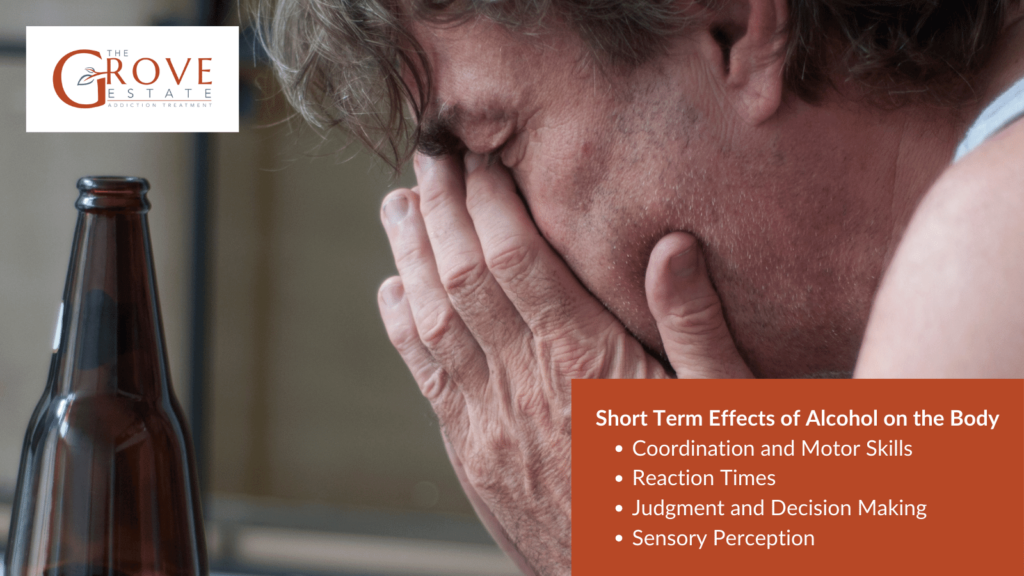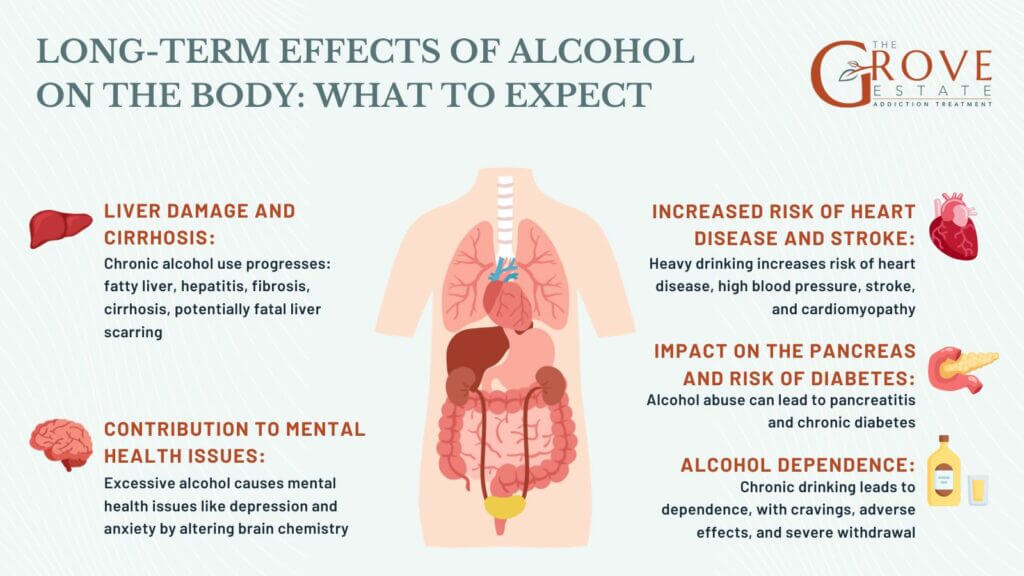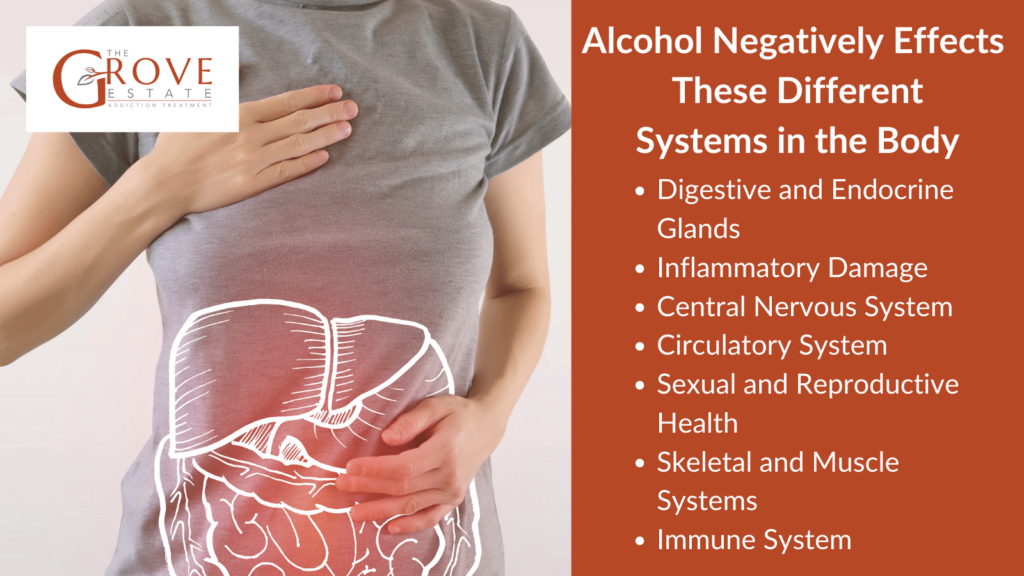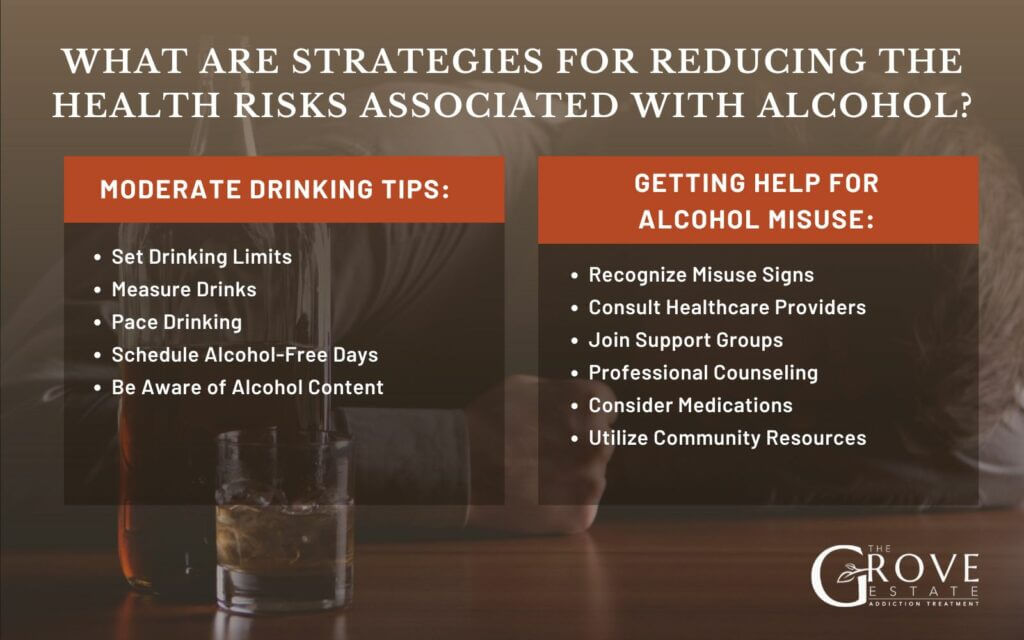Alcohol is one of the most widely consumed substances globally, with nearly 2 billion people worldwide reporting regular alcoholic beverage consumption. Despite its pervasive presence, the impact of alcohol on the body remains a subject of significant public health concern. For instance, the World Health Organization reports that alcohol contributes to over 3 million deaths annually, accounting for nearly 5% of all deaths worldwide.
This global acceptance of alcohol spans various cultures and settings, reflecting a complex relationship with this substance. Social gatherings, religious rituals, and even professional settings often see alcohol as a central element, enhancing camaraderie and celebration. Yet, alongside its role in social lubrication and cultural rituals, alcohol bears a dual nature that is less benign.
While moderate alcohol consumption is relatively safe, the line between moderate and excessive intake is often blurred. Excessive alcohol use can lead to a host of health issues, including liver disease, cardiovascular problems, and an increased risk of certain cancers. This dual nature of alcohol makes it a significant yet controversial topic in health discussions, necessitating a nuanced approach to understanding its effects on the body.

What are the Immediate (Short-term) Effects of Alcohol on the Body?
The immediate effects of alcohol on the body can vary widely depending on the amount consumed, the time frame of consumption, and individual differences in how alcohol is metabolized. Alcohol is a depressant, which means it slows down brain function and neural activity. Initially, this can manifest as a feeling of relaxation and euphoria. Alcohol lowers inhibitions, which can make individuals more sociable and talkative. However, these effects quickly evolve as more alcohol is consumed, potentially leading to more negative emotional states, such as aggression or depression.
Physical Effects:
- Coordination and Motor Skills: Alcohol impairs motor coordination and balance, which can lead to clumsiness and accidents. The risk of falls and traumatic injuries increases significantly under the influence of alcohol.
- Reaction Times: Alcohol slows reflexes and reaction times, making it dangerous to operate vehicles or machinery. This delayed reaction can also impair one’s ability to respond quickly to changes in the environment, increasing the likelihood of accidents.
- Judgment and Decision Making: Alcohol affects the prefrontal cortex, the part of the brain responsible for judgment and decision-making. This impairment can lead to poor decisions, such as engaging in risky behaviors like unsafe sexual practices or driving under the influence.
- Sensory Perception: Alcohol can alter hearing, vision, and perception of pain, which may contribute to the hazardous decisions and behaviors observed in intoxicated individuals.
Potential for Alcohol Poisoning
Alcohol poisoning is a serious consequence of drinking large amounts of alcohol in a short period. This acute medical condition occurs when alcohol levels in the bloodstream are high enough to inhibit the brain’s ability to regulate critical bodily functions such as temperature, breathing, heart rate, and the gag reflex, which prevents choking.
- Symptoms of Alcohol Poisoning: Symptoms include confusion, vomiting, seizures, slow or irregular breathing (less than eight breaths a minute or a gap of more than 10 seconds between breaths), hypothermia (low body temperature), pale or bluish skin color, stupor (being conscious but unresponsive), and unconsciousness or coma.
- Immediate Risks: Alcohol poisoning can be fatal if not treated promptly. Risks include choking on vomit, severe dehydration from vomiting, which can lead to seizures, permanent brain damage due to lack of oxygen, hypothermia, and irregular heartbeat, which can lead to cardiac arrest.
What are the Long-term Effects of Alcohol on the Body?

The long-term effects of alcohol on the body are numerous and significant, impacting almost every organ system. Chronic excessive alcohol consumption can lead to a range of health issues, some of which can be fatal. Here’s a detailed list of the chronic effects of excessive alcohol consumption on various organs and systems:
- Liver Damage and Cirrhosis: Chronic alcohol use can progress from fatty liver to alcoholic hepatitis, fibrosis, and finally cirrhosis, a serious condition marked by liver scarring and diminished function which can be fatal.
- Increased Risk of Heart Disease and Stroke: Excessive drinking raises the risk of heart disease, high blood pressure, cardiomyopathy, arrhythmias, and stroke, all of which can be life-threatening.
- Impact on the Pancreas and Risk of Diabetes: Alcohol abuse can cause pancreatitis, which in chronic forms may lead to diabetes due to impaired insulin production by the pancreas.
- Contribution to Mental Health Issues: Long-term excessive alcohol use can lead to serious mental health problems, including depression and anxiety, by altering brain chemistry and exacerbating existing mental health conditions.
- Alcohol Dependence: Chronic drinking can result in alcohol dependence, characterized by a strong craving for alcohol, continued use despite adverse consequences, and withdrawal symptoms. This condition has comprehensive health impacts, including weakened immune function and severe withdrawal complications.

How Does Alcohol Affect Different Systems of the Body?
Alcohol consumption can have profound and diverse effects on various systems of the body, often worsening with long-term abuse. Here’s how alcohol impacts different systems:
- Digestive and Endocrine Glands: Alcohol interferes with the digestive system’s ability to absorb nutrients and vitamins, which can lead to malnutrition. It also disrupts the functions of the glands that release hormones necessary for metabolism regulation, impacting glucose levels and contributing to weight gain or loss.
- Inflammatory Damage: Alcohol can cause chronic inflammation, which is linked to a wide range of chronic diseases including heart disease, liver disease, and cancer. This inflammatory response can damage organs and systems throughout the body.
- Central Nervous System: Chronic alcohol use can lead to long-term cognitive impairments, including memory loss and reduced decision-making ability. There is also a significant correlation between heavy alcohol use and an increased risk of developing dementia and other forms of cognitive decline.
- Circulatory System: Alcohol affects the heart and blood vessels, leading to increased blood pressure and heart rate. Long-term effects include an increased risk of developing heart disease, heart attacks, and strokes.
- Sexual and Reproductive Health: Alcohol consumption can negatively affect sexual health and reproductive functions. It can lead to reduced libido, fertility issues, and in some cases, contribute to conditions like erectile dysfunction in men and menstrual irregularities in women.
- Skeletal and Muscle Systems: Alcohol can weaken bones, making them more fragile and prone to fractures. It also affects muscle tissue, leading to muscle weakness and cramping, and can interfere with the body’s ability to build and maintain muscle mass.
- Immune System: Regular alcohol use can weaken the immune system, making the body more susceptible to diseases. This includes a higher risk of infections and slower healing times for injuries.
What are the Risk Factors for Developing Alcohol-Related Health Issues?
The risk of developing alcohol-related health issues is influenced by a complex interplay of genetic, environmental, and personal factors. Understanding these can help identify individuals at higher risk and guide interventions to reduce their risk. Here’s an exploration of these factors:
Genetic Factors
Genetic factors significantly influence an individual’s susceptibility to alcohol misuse and addiction. Certain genes affect how the body metabolizes alcohol, which can vary greatly from person to person. These genetic differences can influence not only how quickly alcohol effects are felt but also the severity of withdrawal symptoms experienced during attempts to quit. Additionally, genetic predispositions can affect the likelihood of developing a dependency on alcohol. This means that some individuals might be more prone to alcohol-related problems due to inherited traits that impact their body’s response to alcohol.
Environmental Factors
Environment heavily influences drinking behavior. This includes cultural attitudes towards alcohol, availability, and societal norms. For example, environments where heavy drinking is normalized can increase the risk of alcohol misuse. Family behavior and peer influence are also critical, individuals raised in homes with alcohol misuse are more likely to engage in similar behaviors.
Personal Factors:
Several personal factors can increase the risk of developing alcohol-related issues:
- Age of First Use: The earlier an individual starts drinking, the higher the risk of developing alcohol dependence later in life.
- Mental Health: People with mental health disorders such as depression, anxiety, or post-traumatic stress disorder (PTSD) are at a higher risk of alcohol misuse as alcohol may be used as a coping mechanism.
- Stress: High levels of stress can lead to increased alcohol consumption as individuals seek relief.
- Social and Economic Factors: Lack of social support, poverty, and unemployment can increase stress and influence drinking behavior.
Populations at Greater Risk
Certain populations are at a greater risk of alcohol misuse and the potential harmful effects associated with it. Understanding who is more vulnerable can help in targeting prevention and intervention efforts more effectively. Here are some groups that statistically face higher risks:
- Young Adults: Particularly in college settings or in young professional groups where binge drinking is more socially acceptable and often encouraged.
- Men: Generally, men are more likely to drink alcohol and to drink in quantities that lead to harm.
- Individuals with a Family History of Alcoholism: Genetic predispositions combined with family behaviors can significantly increase risk.
- People with Mental Health Issues: As mentioned, those dealing with mental health challenges may use alcohol to self-medicate.
What are Strategies for Reducing the Health Risks Associated with Alcohol?

Reducing the health risks associated with alcohol involves adopting a range of strategies that promote moderation, awareness, and support. Here are effective strategies to consider:
Moderate Drinking Tips:
- Set Drinking Limits: Decide in advance how many drinks you’ll have and adhere to it.
- Measure Drinks: Use standard measures to avoid larger servings.
- Pace Drinking: Aim for no more than one standard drink per hour and alternate with non-alcoholic beverages.
- Schedule Alcohol-Free Days: Designate several alcohol-free days each week to decrease overall intake.
- Be Aware of Alcohol Content: Understand the alcohol content in different types of drinks to better manage consumption.
Seeking Help for Alcohol Misuse:
- Recognize Misuse Signs: Early recognition of issues like drinking more than intended or inability to cut down is crucial.
- Consult Healthcare Providers: Discuss concerns with a healthcare provider for guidance or referrals.
- Join Support Groups: Groups like Alcoholics Anonymous provide peer support.
- Professional Counseling: Therapists can help address underlying issues and develop coping strategies.
- Consider Medications: Certain medications can help manage cravings or withdrawal symptoms under medical supervision.
- Utilize Community Resources: Access local workshops, counseling, and support groups.

How to Seek Help and Treatment for Alcohol Misuse
Seeking help for alcohol misuse typically involves several key treatments, including detoxification, therapy, and medication. Detoxification is the first step, conducted under medical supervision to manage withdrawal symptoms safely. Various therapies, such as cognitive-behavioral therapy and motivational interviewing, are used to address behaviors and thought patterns associated with drinking.
Group therapy and support groups like Alcoholics Anonymous also play a crucial role in providing peer support and promoting sustained recovery. Additionally, medications may be prescribed to help reduce cravings or manage withdrawal symptoms. It’s essential to engage with healthcare professionals to tailor a treatment plan that addresses both the physiological and psychological aspects of alcohol addiction, ensuring a holistic approach to recovery.
What are Prevention and Education Techniques for Alcohol Consumption?
Public health initiatives are crucial in educating the public about safe alcohol use and implementing strategies to prevent alcohol misuse. These initiatives focus on raising awareness of the risks associated with excessive drinking and promoting moderation. Key strategies include public education campaigns that provide clear information on the dangers of alcohol abuse and the benefits of responsible drinking.
Additionally, programs are often implemented in schools and communities to teach young people about the consequences of alcohol misuse. Policies such as regulating alcohol advertising, setting legal drinking ages, and controlling the availability of alcohol also play a significant role in reducing alcohol misuse. These combined efforts help to foster a healthier approach to alcohol consumption across different segments of the population.
Is there a safe level of drinking alcohol?
“Safe” levels of drinking vary by individual and context. However, moderate drinking, defined by the U.S. Dietary Guidelines for Americans as up to one drink per day for women and up to two drinks per day for men, is generally considered lower risk. It’s important to note that certain people should avoid alcohol altogether, including pregnant women, individuals taking certain medications, those with certain medical conditions, and people who are recovering from alcoholism.
What happens during alcohol withdrawal?
Symptoms of alcohol withdrawal can range from mild to severe and include sweating, shaking, anxiety, nausea, vomiting, headache, increased heart rate, irritability, and in severe cases, seizures and delirium. Symptoms typically begin within hours of the last drink, peak in a day or two, and improve within five days.
Can alcohol have an impact on sleep?
Although alcohol might help people fall asleep, it impairs the quality of sleep by reducing rapid eye movement (REM) sleep. Disruptions in REM sleep can lead to daytime drowsiness and poor concentration.
How does alcohol interact with medications?
Alcohol interacts dangerously with over-the-counter and prescription medications like antibiotics. It decreases the efficacy of the medicines and increases the risk of harmful side effects, such as liver damage, heart problems, and increased risk of overdoses.
What are the immediate effects of alcohol on the brain?
The immediate effects of alcohol on the brain can vary widely based on the amount consumed and individual susceptibility, but generally, alcohol acts as a central nervous system depressant. Initially, it may enhance mood and reduce inhibitions, making a person feel more sociable and less anxious. However, as consumption increases, alcohol’s depressant effects become more pronounced, leading to impaired judgment, slowed reflexes, and reduced coordination. These changes can affect a person’s ability to think clearly, make rational decisions, and respond to environmental cues, increasing the risk of accidents and injuries.
For more detailed information on how alcohol impacts cognitive functions and contributes to risk behaviors, one can explore the link about alcoholism and domestic abuse. This resource provides insights into the broader social and personal implications of alcohol consumption, emphasizing the importance of understanding and addressing these risks.
How does chronic alcohol consumption affect the liver?
Chronic alcohol consumption has profound and detrimental effects on the liver, an organ crucial for metabolizing and detoxifying substances ingested by the body. Initially, alcohol consumption can lead to fatty liver, a reversible condition characterized by increased fat deposits in liver cells. However, continued excessive drinking can progress to alcoholic hepatitis, an inflammation of the liver, and eventually to cirrhosis, which involves permanent scarring and impaired liver function. These stages reflect cumulative damage that can significantly compromise liver health and overall metabolic processes.
Individuals concerned about liver health due to alcohol consumption should consider consulting resources on residential detox, which can provide the necessary medical supervision and support to manage withdrawal safely and reduce the risk of severe liver complications associated with stopping alcohol use abruptly.

Share This Post



